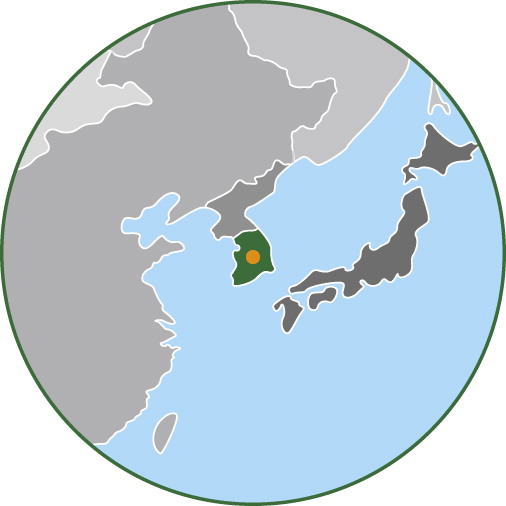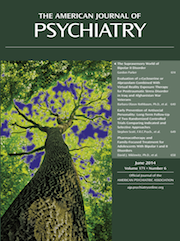“Ms. D,” a 65-year-old, elementary school-educated, Christian, Korean housewife, visited our outpatient clinic in May 2013. She initially complained of difficulty falling asleep, indigestion, chest discomfort, uncomfortable heat sensations, and anxiety. In an hour-long interview, she reported feelings of sadness, hopelessness, and hostility toward her husband, who was a pathological gambler. She said that she “often wished [she] was dead or [her] husband was dead” and that her “life had been wasted.” Despite having these symptoms for years, this was only her second psychiatric visit, as she was concerned about stigma and “addiction to medication.”
Ms. D was born in 1948, the fourth of seven children. After the Korean War, her family suffered from hunger and poverty. Her father was patriarchal and violent, and often beat Ms. D even if one of her brothers had committed the wrong. Ms. D remembered how terrified she was when her mother had tried to run away from home several times. After elementary school, only two of her brothers were allowed attend middle school. She felt it very unfair to be forced to quit school because she was a girl. She learned to sew, and she worked to pay her brothers’ school fees.
When she was 22, her father forced her to marry the son of her uncle’s friend. In rural 1970s South Korea, it was hard to go against parental wishes regarding marriage, and Ms. D simply submitted to “her fate.” The couple ran a tailor shop together. After a few years, because of the growth in the mass-produced clothing industry, they had to close the shop. While Ms. D worked as a waitress, even while pregnant, her husband became addicted to gambling and often demanded money from her violently. Her mother-in-law also treated her harshly. Her religious beliefs helped her get through difficult periods.
She considered her children her hope in life. Fifteen years ago, her son had a sudden syncope at age 23, and doctors diagnosed heart disease. Ms. D could not pay for the surgery immediately, as she was unemployed because of the country’s financial crisis and had no savings because her husband had lost them all gambling. Ms. D felt severe guilt about her son’s suffering. She visited a psychiatrist once, but did not take any medication. Ms. D experienced insomnia, indigestion, heat sensations, and chest discomfort, a group of symptoms that han-i-sa—practitioners of traditional Korean medicine, who are trained separately from modern medical doctors—refer to as hwa-byung (“fire illness” or “anger syndrome”). Using herbal medicine, her symptoms waxed and waned.
A few years ago, her children moved to other cities. Ms. D knew that they had their own lives but still felt alone and abandoned. Last year, her husband was diagnosed with lung cancer, and although Ms. D tried to treat him well, he was still mean to her and never expressed any appreciation for her care. Her symptoms worsened, and she decided to visit a psychiatrist.
Ms. D was of average height, well oriented, and anxious. She sighed a lot, sometimes tearing up, and her voice rose angrily when talking about how unfair her life was. There was no evidence of psychotic, dissociative, phobic, or obsessive-compulsive phenomena. Her cognitive performance was normal. When asked about the causes of her problems, she claimed that she had hwa-byung, and blamed her husband.
Ms. D was given a prescription for venlafaxine, starting at 37.5 mg/day and slowly increasing to 150 mg/day over an 8-week period. She was also given zolpidem, 5 mg p.r.n., for insomnia. During weekly supportive psychotherapy sessions, her psychiatrist worked on empathy and abreaction. After some family education was provided, her daughter began to show Ms. D more attention and appreciation, which Ms. D said somewhat compensated for her own sacrifice. After 3 months of treatment, Ms. D reported considerable relief from her depressive and anxious symptoms. She recently enrolled in a junior high school evening school class, because she had always wanted to resume studying. Although her husband remains unchanged, she is now better able to control her mood.
Discussion
Ms. D met the criteria for major depressive disorder with anxious distress of moderate severity. In addition, particular characteristics of somatization, possibly associated with her stressors, were noted. Even though her symptoms overlap partially with DSM-5 somatic symptom disorder and posttraumatic stress disorder, the most appropriate diagnosis is major depressive disorder with anxious distress. The repetitive stressful events she experienced throughout her life may have served as environmental risk factors in causing depression.
The clinical features of this case are frequently exhibited in depressed Korean patients. Such patients tend to reveal culture-specific somatic complaints (
1) because they feel shame or fear stigma if they are seen as mentally ill. Traditional Eastern medicine considers body and mind as one system (
2), which may lead Koreans to elaborate somatic symptoms to express emotional distress, instead of psychological differentiation. In addition, Koreans may express emotional and psychological distress through metaphorical somatic idioms, since it is traditionally deemed unacceptable to express one’s feelings in bare emotional terms (
3).
Like Ms. D, a significant portion of Korean patients with depression—in particular, women past middle age—label themselves as having
hwa-byung when speaking to a physician. Lin et al. (
4) suggested that
hwa-byung symptoms may be a cultural pattern of expression for Koreans experiencing depression. Somatic symptoms, anger, and repeated mention of unfair situations are typically observed in such patients (
5; see also the entry for
hwa-byung in the list of culture-bound syndromes in appendix I of DSM-IV).
Hwa-byung is suggested to stem from the Korean culture’s emphasis on conformity, family integrity, and traditional gender roles; this originates in Confucianism, where the individual is expected to sacrifice personal desires for family needs (
6).
Korea has experienced rapid changes over the past century, among them the Japanese colonial era, the Korean War, the acceleration of industrialization, and the financial crisis of 1997–1998. Although individualization is growing among Westernized youth, Confucianism has remained a major force in shaping Korean social principles (
7). These opposing values lead to conflicts, as well as a generation gap. Elderly Korean patients with depression complain of not being understood by the younger generation (e.g., when Ms. D talked about her difficult life, her daughter-in-law did not seem to understand), and vice versa.
As with Ms. D, depression in Korea manifests somewhat different clinical characteristics than it does in Western cultures. Culture influences symptom experience and expression; diagnosis; attitude toward treatment; and doctor-patient relationships (
8). According to the ethnopsychiatric view,
hwa-byung may be a culturally patterned set of somatic idioms of distress due to interpersonal problems and a collective emotional reaction against injustice (
9). Clinicians should therefore remember that symptoms in depressed patients labeling their condition as
hwa-byung may indicate not only physical distress but also interpersonal issues. Although there is little ethnic diversity in Korea, other factors, such as the patient’s generation, socioeconomic status, gender, religion, and educational background, can influence the definition of the problem, the perception of context, self-coping, and help-seeking patterns. Using the DSM-5 Cultural Formulation Interview to integrate these data may help the clinician understand each patient better.
Depression may be associated with Korea’s high suicide rate, which is the highest of all member countries of the Organization for Economic Cooperation and Development (
10) and has only grown since the financial crisis. Effects of governmental efforts to reduce depression and suicide have yet to yield results, and many Koreans remain reluctant to visit a psychiatrist because of fear of the shame and stigma associated with mental illness. In Korean culture, people are expected to regulate depressive symptoms by themselves, using willpower (
3). As in Ms. D’s case, depressed patients often seek help from churches, practitioners of traditional Korean medicine, or physicians to treat somatic symptoms, rather than asking for psychiatric care. It seems to take longer for Korean patients with depression to receive proper treatment after the onset of symptoms. Therefore, clinicians should be alert for unexplainable somatic symptoms to ensure a timely depression diagnosis. Addressing psychopathology-related stigma and misconceptions should be a priority in South Korea.


